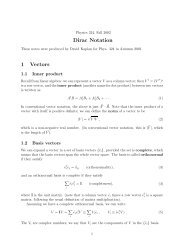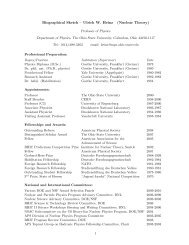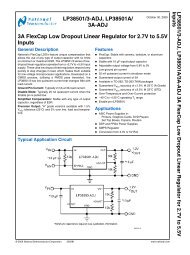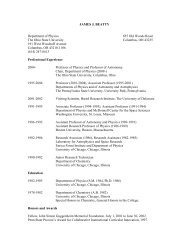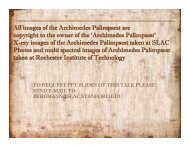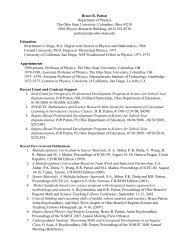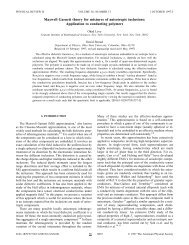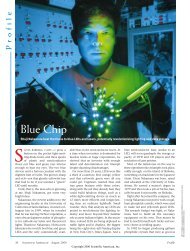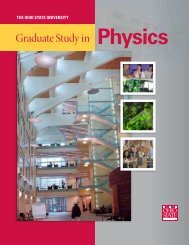You also want an ePaper? Increase the reach of your titles
YUMPU automatically turns print PDFs into web optimized ePapers that Google loves.
196<br />
Personality<br />
and Character<br />
Even the most common magic items can have personality.<br />
Magic is a strange and wondrous force, and the<br />
arcane energy at loose in the world can change the<br />
people and objects it touches. As such, magic items—<br />
especially those created in ancient times or found in<br />
magic-rich environments—can develop quirks.<br />
For instance, the surface of a magic shield might<br />
darken as if bruised or glow an angry red when it is<br />
struck in battle. A weapon might shout out curses<br />
against its wielder’s enemies in the first round of<br />
combat. Gloves made for a healer might become<br />
noticeably warm whenever the wearer enters combat.<br />
Such quirks serve the same function as the<br />
quirks and mannerisms given to NPCs by the DM.<br />
They add minor narrative color to an item and to the<br />
campaign as a whole. Be careful how you apply and<br />
use them, however. A quirk can involve a minor negative<br />
drawback, but it should never hinder or affect an<br />
item’s usefulness, especially in combat.<br />
PC Influence<br />
The PCs are the game’s focus. Any magic items they<br />
carry—whatever their history and character—should<br />
reflect this fact. The actions of a PC can have an<br />
impact on the items he or she carries, causing those<br />
items to take on specific characteristics as a result of<br />
being wielded by a character of power and destiny.<br />
Giving out item levels as treasure (discussed later<br />
in this chapter) is one way to give the PCs a degree<br />
of influence over the magic they carry. Another way<br />
is to create quirks not as a reflection of an item’s history<br />
but as an example of a PC’s influence. This is<br />
particularly appropriate when a player chooses to use<br />
CHAPTER 2 | Magic Items<br />
an item as a roleplaying hook, rewarding player and<br />
character alike for interacting with the game world in<br />
a meaningful way. For example, a fighter’s prized axe<br />
might start to echo its wielder’s battle cry whenever<br />
it scores a critical hit. A paladin’s shield might glow<br />
brightly as a symbol of her virtue when she fights<br />
sworn enemies.<br />
Such character-inspired items can even be<br />
reused in a new campaign after epic characters pass<br />
into myth and immortality. When new PCs discover<br />
these legendary relics, the players whose characters<br />
were the item’s original owners can have the satisfaction<br />
of seeing their roleplaying efforts live on.<br />
Alignment<br />
Magic items can be strongly attuned to good or evil.<br />
An item with an alignment might impose a minor<br />
penalty or drawback on a wielder of different alignment.<br />
A magic weapon or implement might withhold<br />
some of its full enhancement bonus, or a magic item’s<br />
powers could fail at a critical moment. (In the most<br />
extreme cases, an item simply might not function in<br />
the hands of a differently aligned character. However,<br />
such limitations are typically useful only as plot<br />
hooks.)<br />
Alignment incompatibilities should never be<br />
allowed to become a permanent hindrance to a<br />
character’s ability to use a magic item. (See Level<br />
Scaling, below, for suggestions on withholding a<br />
magic item’s powers in a more balanced way.) Characters<br />
should always be given the chance to earn an<br />
item’s full power. For example, a PC might be able<br />
to redeem a partially functioning evil item by using<br />
it for good. Such an undertaking makes an excellent<br />
minor quest, or it could become a hook for an entire<br />
campaign.<br />
DAVID GRIFFITH




